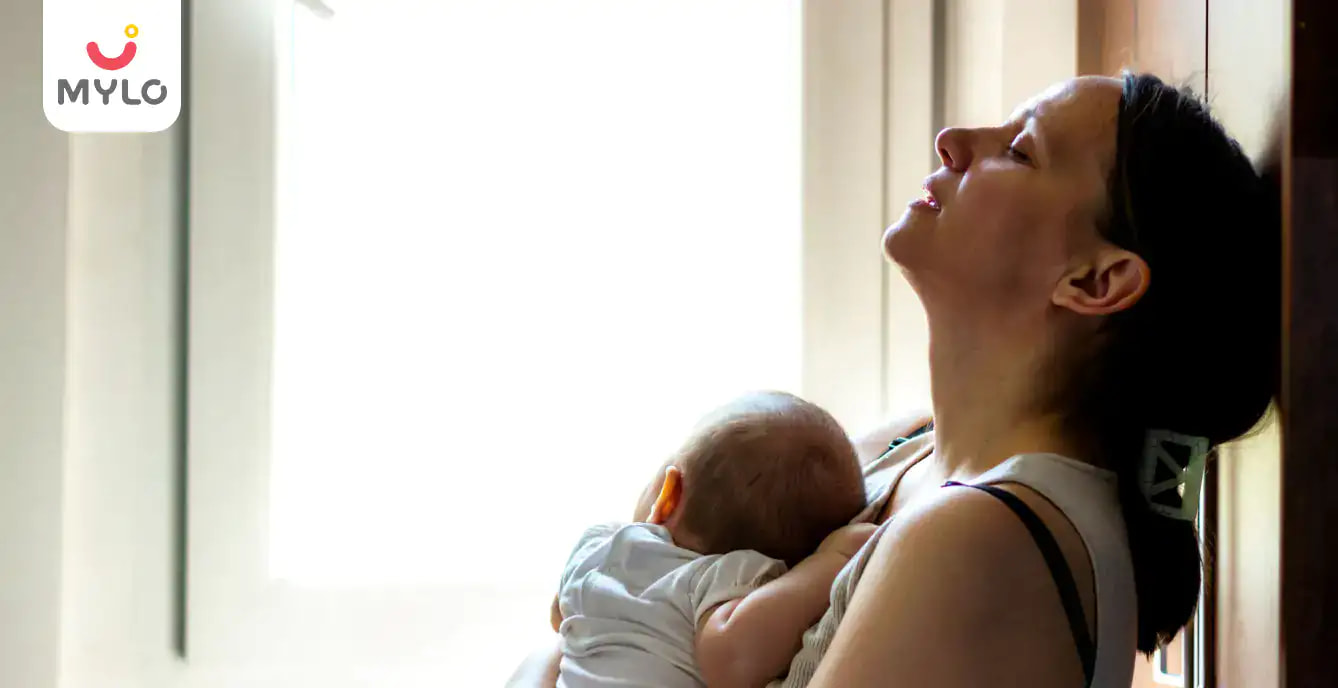Home

Early Pregnancy

Bleeding During Early Pregnancy- What is Normal?
In this Article

Early Pregnancy
Bleeding During Early Pregnancy- What is Normal?
Updated on 3 November 2023



Medically Reviewed by
Dr. Ritu S Santwani
Infertility treatment, Cosmetology, Recurrent abortion treatment, Menopause, Hysteroscopy & colposcopy, PCOS/PCOD, Sexual health - M.D (Obst & Gynaec)| FICOG, FIAOG, AMRCOG, ART-Singapore
View Profile

Introduction
Pregnancies are complex scenarios with a lot of things held in a delicate balance that ensures the health and well-being of the expecting mother and the child she is carrying. Several biological markers indicate how well this balance is maintained and how healthy the mother and child are and how well the pregnancy is progressing. Just as the body triggers a range of biochemical signals to indicate the start of a pregnancy, there are several signals to indicate the progress of the pregnancy. An important signal here is vaginal bleeding. This condition could be indicative of many things, mostly concerning issues. Read on to know more about bleeding in early pregnancy.
Bleeding in Early Pregnancy
Bleeding in early pregnancy is not something that should be taken lightly, and you should keep your gynaecologist informed about it or even consult them and get the required treatment as per the necessity. Bleeding in early pregnancy could be caused by multiple factors and each requires different treatment methods. Although vaginal bleeding during any stage of pregnancy has negative connotations to it, not all pregnancies or the mother and child are affected by it, provided they receive adequate medical attention and care.
Bleeding in early pregnancy is something that is not exactly normal, however, the causative factor varies in each case and has different implications. During the early stages of pregnancy or the first trimester, if you experience vaginal bleeding, it could have the following explanations and you should consult your gynaecologist as soon as you can.
1. Implantation bleeding
Implantation bleeding is the only first trimester bleeding that is not a cause for alarm. Implantation bleeding is quite a normal phenomenon that happens nearly 10 to 14 days after conception. After conception, the fertilised egg begins to develop into an embryo and travels down to the uterine area. For a successful pregnancy, the embryo must attach itself to the uterine wall. This process, known as implantation, is often accompanied by bleeding. It is not uncommon for you to not experience or even notice implantation bleeding. Implantation bleeding is not a cause for alarm and does not usually require treatment. However, you should consult your gynaecologist to ensure the bleeding is caused by implantation and is not indicative of any other serious conditions.
2. Threatened pregnancy
In some cases, the improper development of pregnancy could lead to an unhealthy embryo. An unhealthy embryo could have negative impacts on the health of the mother, and the body takes steps to terminate the pregnancy. The early stages of this termination process could be noticed as a blood clot forming around the embryo. The end of this process results in what is commonly known as a miscarriage. Visiting your gynaecologist on time will help you check for the presence of such clots and take the necessary steps to prevent losing the embryo or to improve the health of the embryo. Threatened miscarriages do not always lead to miscarriage. About 50% of the women who experience threatened pregnancies do not experience miscarriages due to timely visits to the doctor.
3. Miscarriage
The termination of a pregnancy due to internal or external causes is known as a miscarriage. A miscarriage is often indicated by heavy vaginal bleeding and nausea. Miscarriages often begin as a threatened pregnancy and will result in a miscarriage if not treated adequately or on time. If you experience vaginal bleeding, nausea, and/or vomiting, make sure you visit your doctor as soon as you can and validate the viability of your pregnancy and take the necessary steps to prevent miscarriage.
4. Ectopic pregnancy
In an ectopic pregnancy, the embryo gets implanted in the fallopian tube. This results in the foetus developing inside the fallopian tubes. The implantation outside the uterus causes the lining of the uterine wall to shed off, which manifests as heavy bleeding. Ectopic pregnancies are extremely complicated due to the erratic implantation and could have several negative effects on both mother and the child. Ectopic pregnancies can be detected by ultrasound or other scanning techniques to understand. If you experience vaginal bleeding during the early stages of your pregnancy, you must visit your gynaecologist to rule out the possibility of an ectopic pregnancy.
Why should you consult a gynaecologist for early pregnancy bleeding?
Bleeding in early pregnancy is rarely a good sign. It is important to know the reason behind the bleeding and to take the necessary steps to prevent further complications. A gynaecologist can help you identify the root cause of your bleeding by running tests and carrying out scans to ensure the healthy progress of your pregnancy. In case of complications, your gynaecologist will help you tackle the situation through medication or other corrective steps.
References
1. Vardhan S, Bhattacharyya TK, Kochar S, Sodhi B. (2007). Bleeding in Early Pregnancy. Med J Armed Forces India. NCBI
Popular Articles:
What Are The Early Symptoms Of Pregnancy Before Missed Period | How To Increase Hcg Levels In Early Pregnancy By Food | How Early To Detect Ectopic Pregnancy | How Do Nipples Look Like In Early Pregnancy
Trending Articles:
What Symptoms Of Pregnancy At 1 Week | How To Avoid Pregnancy Naturally After Missing Period | How Many Days To Confirm Pregnancy | How To Avoid Pregnancy After Having Sex





Medically Reviewed by
Dr. Ritu S Santwani
Infertility treatment, Cosmetology, Recurrent abortion treatment, Menopause, Hysteroscopy & colposcopy, PCOS/PCOD, Sexual health - M.D (Obst & Gynaec)| FICOG, FIAOG, AMRCOG, ART-Singapore
View Profile


Written by
Priyanka Verma
Priyanka is an experienced editor & content writer with great attention to detail. Mother to an 11-year-old, she's a ski
Read MoreGet baby's diet chart, and growth tips

Related Articles
Related Topics
RECENTLY PUBLISHED ARTICLES
our most recent articles

Diet & Nutrition
গর্ভাবস্থায় আলুবোখরা: উপকারিতা ও ঝুঁকি | Prunes During Pregnancy: Benefits & Risks in Bengali

Diet & Nutrition
গর্ভাবস্থায় হিং | ঝুঁকি, সুবিধা এবং অন্যান্য চিকিৎসা | Hing During Pregnancy | Risks, Benefits & Other Treatments in Bengali

Women Specific Issues
স্তনের উপর সাদা দাগ: লক্ষণ, কারণ এবং চিকিৎসা | White Spots on Nipple: Causes, Symptoms, and Treatments in Bengali

Diet & Nutrition
গর্ভাবস্থায় পোহা: উপকারিতা, ধরণ এবং রেসিপি | Poha During Pregnancy: Benefits, Types & Recipes in Bengali

Diet & Nutrition
গর্ভাবস্থায় মাছ: উপকারিতা এবং ঝুঁকি | Fish In Pregnancy: Benefits and Risks in Bengali

Diet & Nutrition
গর্ভাবস্থায় রেড ওয়াইন: পার্শ্ব প্রতিক্রিয়া এবং নির্দেশিকা | Red Wine During Pregnancy: Side Effects & Guidelines in Bengali
- ইনার থাই চ্যাফিং: কারণ, উপসর্গ এবং চিকিৎসা | Inner Thigh Chafing: Causes, Symptoms & Treatment in Bengali
- গর্ভাবস্থায় ব্রাউন রাইস: উপকারিতা ও সতর্কতা | Brown Rice During Pregnancy: Benefits & Precautions in Bengali
- Velamentous Cord Insertion - Precautions, Results & Safety
- Unlock the Secret to Flawless Skin: 7 Must-Have Qualities in a Face Serum
- Unlock the Secret to Radiant Skin: How Vitamin C Serum Can Transform Your Complexion
- Gender No Bar: 10 Reasons Why Everyone Needs a Body Lotion
- Unlock the Secret to Radiant Skin How to Choose the Perfect Body Lotion for Your Skin Type
- Top 10 Reasons to Apply a Body Lotion After Every Bath
- Communication in Toddlers: Milestones & Activities
- How to Improve Vocabulary for Toddlers?
- A Comprehensive Guide to Understanding Placenta Accreta
- Vulvovaginitis in Toddlers Causes, Symptoms and Treatment
- A Comprehensive Guide to Understanding Cerebral Palsy in Children
- Bitter Taste in Mouth During Pregnancy: Understanding the Causes and Remedies


AWARDS AND RECOGNITION

Mylo wins Forbes D2C Disruptor award

Mylo wins The Economic Times Promising Brands 2022
AS SEEN IN

- Mylo Care: Effective and science-backed personal care and wellness solutions for a joyful you.
- Mylo Baby: Science-backed, gentle and effective personal care & hygiene range for your little one.
- Mylo Community: Trusted and empathetic community of 10mn+ parents and experts.
Product Categories
baby carrier | baby soap | baby wipes | stretch marks cream | baby cream | baby shampoo | baby massage oil | baby hair oil | stretch marks oil | baby body wash | baby powder | baby lotion | diaper rash cream | newborn diapers | teether | baby kajal | baby diapers | cloth diapers |








